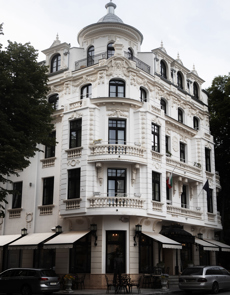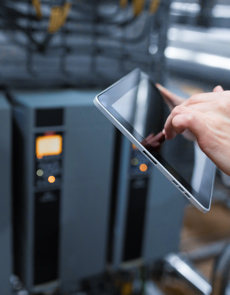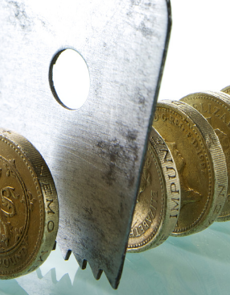Pub and bar maintenance checklist
Regular maintenance in your pub or bar isn’t a luxury, it’s an absolute must when it comes to maintaining your reputation, and delivering the best possible experience for your customers. But you already know that. The issue is, in a busy venue with customers coming through the door all day, it can be a challenge to keep on top of everything that needs to be done.
When the upkeep of your premises becomes reactive, and you move from regular maintenance to emergency repairs, costs can spiral and customer satisfaction can drop quickly. So, how do you make sure you’ve got the right processes in place, and they’re being followed consistently?
As a leading supplier of software solutions for the hospitality industry, here at Access Hospitality we’re used to helping busy pubs and bars to adopt technology to help them achieve success.
In this article, we’ll break down a list of typical daily, weekly, and monthly tasks that need to be carried out in licensed premises to ensure everything runs smoothly and we’ll share some of the ways bar maintenance software could do some of the organising for you.
What should you include in your maintenance checklist?
Creating a pub maintenance checklist isn’t just about repairs, cleaning and restocking. The outcomes of regular, consistent and well-planned checks include other benefits such as better staff retention, and higher levels of customer satisfaction. Ultimately, a great pub maintenance checklist contributes to your future success, so it’s worth investing some time into creating one that works for you.
How you schedule maintenance checks and what you include depends on many factors that are unique to your pub - your opening hours, location, building age, type and size. So, let’s take a look at some of the daily, weekly, monthly, or seasonal checks you should consider implementing.
Daily maintenance tasks
When staff understand what is expected of them and whose responsibility it is to do what, things get done more efficiently and thoroughly. Daily checks, in the main, are most likely to be scheduled for staff who work behind the bar or behind the scenes ensuring cleanliness and comfort for customers, and compliance with health and safety requirements.
Key tasks to undertake daily include:
1. Clean and check beer lines
Start the day by flushing and sanitising beer lines to keep your pints tasting fresh and your customers happy.
2. Inspect and sanitise kitchen and bar equipment
Check that all kitchen and bar equipment, from coffee machines to glasswashers, are working correctly and if you see signs of disrepair, deal with it before they break down and it becomes a costly problem. Also, make sure to give all surfaces a thorough wipe down and sanitise to make sure cleanliness is up to standard.
3. Restock and clean bathrooms
Make sure your toilets are well-stocked with essentials like toilet paper, soap, and hand towels. Clean and sanitise all areas, and check the exhaust fans are working. And don’t forget that this is a task that will have to be done multiple times throughout the day if you don’t want to scare off your customers.
4. Verify fire and safety equipment
Ensure fire exits are clear and accessible, and double-check that emergency lights are operational, and that fire extinguishers are in place and easily visible to keep everyone safe.
5. Inspect refrigeration units
Faulty fridges and freezers can cost you more than a repair bill. If they stop working properly, all of the food in them will have to be discarded, or you could be risking your customers’ health. So, check that all fridges, freezers, and coolers are at the right temperatures. Any leaks or pooling water should be looked at straight away to avoid disruptions later.
6. Monitor lighting and electrical outlets
A quick check on all lighting, particularly around entrances, exits, and toilets, ensures a well-lit, welcoming space. You should also confirm that electrical outlets are safe and in good working order.
7. Clean and sanitise all service areas
Give all bar tops, tables, chairs, and high-touch surfaces a solid clean and sanitise. Keep an eye on cleanliness throughout the day, especially in high-traffic areas.
8. Conduct a quick stock check
Review stock levels of popular items, and order anything that’s running low; staying on top of stock avoids the last-minute scramble of running out of key items. To make life easier, an inventory management system can really help to remove the manual work of regular stock checks.
9. Check glassware and utensils
Ensure all glassware, cutlery, and utensils are clean, polished, and free of chips or damage. Clean, safe presentation is key to a great customer experience.
10. Test the HVAC system
A quick run of the HVAC system confirms it’s working as it should. Adjust the temperature as needed for customer comfort, and check for any unusual sounds or issues to stay ahead of repairs.
11. Look for signs of pests
The last thing you want is an infestation. Regularly inspect key areas for telltale signs of pests and if you’re using traps, check on them daily.
12. Set up for waste management
Make sure bins are emptied and cleaned, especially in bar areas and washrooms, to keep unpleasant odours at bay and maintain a fresh atmosphere.
Weekly maintenance tasks
Schedule weekly tasks for a period that is typically quieter. Or to minimise any disruption to your customers, consider opening a little later on one of your quietest days to allow your staff to carry out weekly maintenance checks.
Weekly tasks to include in your bar maintenance checklist include:
1. Deep clean kitchen and bar areas
Give all kitchen and bar surfaces, floors, and equipment a more thorough clean than the daily routine allows. Focus on areas that see heavy use, like countertops, bar mats, and under-bar storage. Don’t forget to clean the taps, hoses, and drip trays to avoid build-up.
2. Inspect refrigeration units and condenser coils
Make sure refrigeration units, coolers and freezers are running at their best. Clean condenser coils to help with energy efficiency, and check door seals to prevent any loss of cold air.
3. Check plumbing and drainage
Inspect sinks, toilets, and any exposed piping for leaks or slow drains. A quick fix now avoids bigger problems later, and a functioning drainage system keeps everything fresh and hygienic.
4. Test and clean lighting fixtures (inside and outside)
Replace any bulbs that may have burnt out and check outdoor lighting to make sure entrances are well-lit and welcoming. Cleaning fixtures of any dust and debris will help to keep the lights bright and efficient.
5. Review and reset pest control measures
Check any traps, replace bait stations, and monitor those areas where pests might be able to get in.
6. Fire safety and emergency equipment check
Keep on top of fire safety checks by confirming that fire extinguishers, emergency lighting, and first aid kits are fully stocked and in good condition, and make sure emergency exit signs are properly illuminated and visible. You should also reduce the risk of fire by cleaning out grease and other build-ups in hoods and grills
7. Clean air vents and replace HVAC filters (if needed)
Give all air vents a thorough clean and check HVAC filters for dirt or dust build-up. Regular maintenance and cleaning of your HVAC system isn’t just a legal requirement, it makes for a more pleasant environment for everyone.
8. Check furniture and fixtures
Check for damage to windows and furniture which could potentially pose a hazard to staff and customers. Keep track of what needs repairing and schedule fixes or replacements as soon as possible.
Monthly and seasonal maintenance tasks
Some tasks may require more time and space away from customers to form part of your daily or weekly pub maintenance checklist, so treat them as seasonal checks. They may be less regular, such as winter checks to prepare for adverse weather, but still play an important role in maintaining a clean, safe and comfortable environment for staff and customers. With the following mix of monthly and seasonal tasks, you’ll have a well-prepared, efficient, and welcoming pub all year round. Staying on top of regular maintenance not only ensures safety and comfort but also saves time and costs in the long run.
Monthly and seasonal maintenance tasks to add to your checklist:
1. Inspect the outside of the building
Check for any damage to your roof, walls, windows, and doors. Catching wear and tear early can prevent bigger issues later, and maintaining a tidy exterior keeps your venue looking welcoming.
2. Service heating and cooling systems ahead of seasonal changes
Schedule HVAC servicing before the shift to winter or summer to make sure your heating system is ready to keep customers warm in winter, and that the air conditioning is ready for the summer rush. Seasonal maintenance also improves energy efficiency.
3. Prepare outdoor seating areas for colder weather
As winter approaches and the beer garden is abandoned in favour of a cosy seat indoors, you can protect outdoor furniture by covering or storing it, to prevent damage from rain, frost, and snow. In the springtime, check that all outdoor areas are clean, furniture is free from damage, and your outdoor space is ready for customers again.
4. Roof and gutter inspection
Check the roof for loose tiles, damage, or leaks, especially ahead of the wettest months. And clear gutters and drainage systems of any leaves and debris to avoid blockages, which can lead to water damage and costly repairs if left unattended.
5. Deep clean upholstery and carpets
Monthly deep cleans for all upholstery and carpets keep them looking fresh and help prevent allergens from building up. This task maintains hygiene and a high standard of presentation for your pub, and it has been shown to extend the life of your carpets, to reduce the need for replacement.
6. Electrical and lighting systems check
Inspect electrical panels, outlets, and circuit breakers for any visible issues. Also, test emergency lighting and ensure that all lighting (inside and out) is working properly. Staying on top of this keeps your venue safe and compliant with health and safety standards.
7. Service large kitchen equipment
Clean and inspect large appliances like ovens, grills, and fryers. Ensure everything is in good working order and deal with any minor issues now to avoid more costly repairs down the line.
8. Inspect and maintain fire doors and emergency exits
Make sure all fire doors close properly and are free from obstructions. Regular checks ensure escape routes are clear, hinges and latches are intact, and emergency signage is visible and illuminated.
9. Security systems check
Test alarms, locks, and CCTV cameras to confirm they’re fully functional and secure. A working security system offers peace of mind to staff and customers alike.
10. Review pest control measures
Confirm that traps and bait stations are in place and effective. Seasonal changes can lead to different pest challenges, so adjust your approach as needed, especially if you notice any increase in pest activity.
Emergency maintenance preparedness
Even when you are 100% on top of your maintenance tasks, unexpected problems will crop up. Issues like power outages, burst pipes, or equipment failures can disrupt even the best-run pubs. That’s why having a solid emergency plan is essential. By preparing for these scenarios, you ensure that your team is equipped to respond quickly, keeping staff and customers safe and minimising downtime and the impact on your bottom line.
It’s worth scheduling regular reviews of your emergency equipment and procedures. Maintenance software can help by setting reminders to check items like fire alarms, first aid kits, and even ensuring that your insurance cover still meets your needs. This takes out the guesswork and makes sure your pub is ready to handle whatever comes its way.
Think ahead to specific issues, too: have a process in place for power outages, plumbing problems, and unexpected equipment failures. For example, knowing who to call and where to find a backup generator or emergency lighting means you can act quickly, keeping things running smoothly.
In flood-prone areas, a business flood kit is also essential, especially if you or your team live on-site. By planning for the worst, you’re set up for the best possible outcome - ready to protect your pub, your team, and your guests if the unexpected happens.
Keep on top of your pub maintenance checklist with Access Hospitality
In this article, we’ve covered a comprehensive checklist of the maintenance tasks you should be performing daily, weekly, and monthly in your venue, and one thing is really clear; managing the maintenance of a busy pub or bar can be incredibly challenging, with so many checks to keep track of - not to mention the unexpected issues that inevitably arise.
That’s where Access Hospitality can help. Our software solutions can streamline the entire process to make sure you’re not just keeping up with maintenance but getting ahead of it.
Our Facility Management Software (CAFM) lets you organise all tasks in one place, from checking equipment to arranging external services. And real-time reporting gives you a full overview at a glance, allowing you to spot and address issues quickly before they impact your business.As well as schedule essential tasks, set automated reminders for seasonal or annual checks, and even track repairs in real time. This ensures that every maintenance duty is handled quickly and easily, helping you stay compliant with health and safety regulations, whilst also keeping your venue in top condition year-round.
With our maintenance software, you gain the tools to run a safer, more efficient, and financially resilient pub.
Interested in finding out how it can work for your business? Watch the 7-minute video demo.
Get effective oversight and control across all your sites with our property maintenance system
Related reading
View our resources to support you with facility management





